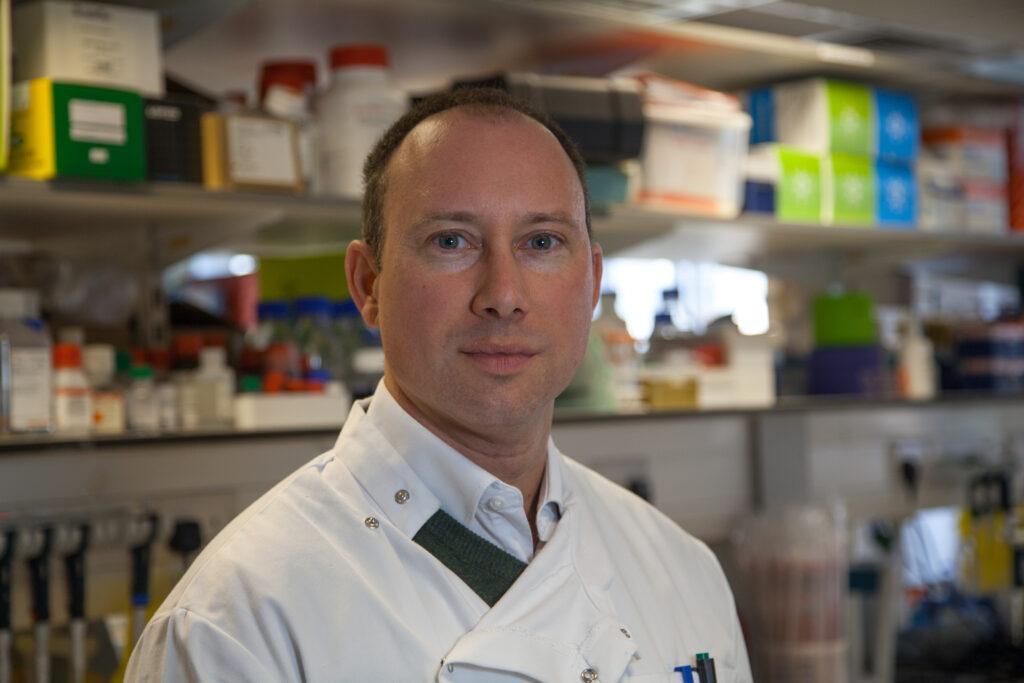Combining medicine with blood cancer research:
The unique perspective of a clinician scientist

This Blood Cancer Awareness Month, we spoke with Dr John Riches, Clinical Senior Lecturer at Barts Cancer Institute (BCI), Queen Mary University of London. Dr Riches is a clinician scientist who splits his time between BCI where he leads a group researching blood cancer in our Centre for Haemato-Oncology and directs the MSc Cancer & Clinical Oncology Programme, and St Bartholemew’s Hospital where he treats blood cancer patients. It’s a 20%/80% split between the clinic and research/teaching.
What triggered your interest in blood conditions/cancer when you were doing your medical training?
I found immunology and haematology very interesting both clinically and scientifically during my medical school training. The accessibility of the tissue (i.e. blood) for research means that we have a deep understanding of immunology and of blood cancers. Clinically, the ward environment seemed calmer than "general medicine" although no less busy (!) and the practice was very evidence based. I also really liked the fact that a haematologist can be involved in all stages in the clinical pathway - see the patient, take the biopsy, look at it under the microscope. I have been interested in science as much as medicine, so trying to combine the two has always been my ambition.
What is the current focus of your research?
My group is attempting to understand the changes in metabolism that occur when the immune system is switched on and how this is reflected in cancers of B cells (a type of immune cell), such as lymphomas and leukaemias. We hope that gaining an enhanced understanding of the metabolism in normal and cancerous B cells will allow us to develop new treatments that target these changes.
How do you think having a clinical perspective benefits your research and vice versa?
Haematology is a very lab-based speciality, so having a better understanding of the techniques used for the clinical tests helps with analysis of the results. When we are in the lab, having a clinical perspective helps us to focus on questions that are clinically important and are directly translational. The scientific perspective can help find new ways of answering these questions.
What are the biggest challenges faced in the clinic in terms of the treatment of blood cancer? How do you think we can overcome these in the future?
I think the biggest challenge for blood (and indeed all) cancers is the variety (or heterogeneity) that we see both in space and time. Every single patient's cancer is slightly different due to baseline genetic and epigenetic changes combined with variation in the environment that the cancer grows in (e.g. the immune microenvironment). Moreover, cancer cells have a tendency to evolve with treatments, and the cells that are resistant to treatment will expand in number and drive progression of the cancer. One way of trying to overcome these challenges is to target fundamental biological processes that are common to all cancers, which the cells cannot bypass - I think certain metabolic pathways fall into this category.
Related links
- Visit Dr Riches profile to find out more about his research
- Find out more about our blood cancer research
- Find out about the research in our Centre for Haemato-Oncology
Category: General News, Interviews

No comments yet